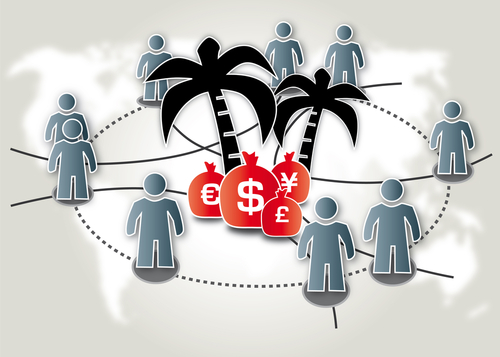2015 FBAR Penalty Appeal Process

It's a must to send a report to the Internal Revenue Service when you have offshore financial accounts with aggregate worth that exceeds $10,000 at any time during the tax year. The due date of filing the FinCEN Form 114, Report of Foreign Bank and Financial Accounts (FBAR) is June 30 every year. Failing to comply can attract huge civil or criminal penalties on those accounts. Both the Internal Revenue Service and Financial Crimes Enforcement Network (FinCEN) have authority on the FBAR process however the IRS is given responsibility to carry out the assessment and enforcement of penalties for non-compliance. Here’s the thing: if an FBAR penalty assessment doesn't go your way, you have got a legal right to appeal. In this article, we will explore some key points on the FBAR appeal process.
Statute of Limitations for FBAR Penalties
First, you don’t have to pay any sort of penalties till the verdict of the appeal process. Typically, there are different Statute of limitations time limit for civil versus criminal FBAR's. And also the statute time periods on assessments (ASED) isn't the same as collection statute expiration date (CSED). The FBAR penalty will likely be determined by your local examiner however only the Office of Appeals will act as a dispute resolution forum for your appeal against the government compliance action. However, FBAR penalties get to appeals either as stand-alone cases or along with a related taxation or offshore penalty.
Two types of appeals
Pre-Assessment Appeals
FBAR penalty cases can be sent to Appeals either pre-assessment or post-assessment but often, they are obtained in pre-assessment time, which is prior to any kind of penalty is imposed on foreign accounts. Alternative Dispute Resolution (ADR) rights are available for pre-assessed FBAR penalties. Fast Track Mediation (FTM) is also available for cases in pre-assessment penalty appeals.
Post-Assessment FBAR Case
When there is less than 180 days remaining on the assessment statute of limitations, the IRS is able to assess FBAR penalties even at the time your case is picked up by Appeals. Is it mean that I can't appeal anymore in case the statute expiration date is near? No, you can. In situation like this, you'll be given post-assessment appeal rights. Post-assessment FBAR penalty cases are going to be handled on expedited basis and has to be processed within 120 days of assignment. But note that Post Appeals Mediation (P.A.M.) or Alternative Dispute Resolution (A.D.R.) rights are not available in a post-assessment Appeals procedure.
Litigation Options
You've got the option to challenge an evaluated FBAR penalty by paying out the penalty first and then filing a refund lawsuit. Keep in mind, litigation can take place only in the United States federal court and not the tax court. If you do not accept the report that the IRS has made or by proving that you have tried to exhaust all of the available administrative remedies, you could litigate by appealing up against the FBAR penalty decision. To best represent the case, you'll want to stay on top of latest changes. The presence of FBAR lawyer with his/her expertise and familiarity with legal proceedings could prove to be beneficial to your court case.
FBAR Reporting - Tips On Avoiding Huge Penalties

In recent years the IRS has intensified its measures to locate and crackdown on unreported foreign bank accounts. To help increase the tax revenue, the IRS targets on and review the tax statements of more and more wealthy taxpayers, hoping to find non-complaint people. When you've got undeclared overseas accounts and unreported income, you should “come clean” with the IRS or you will be slapped with significant FBAR penalties and might even get you in prison.
The severity of the FBAR penalties
FBAR penalties are determined on one's account value rather than on the taxpayer's gross income. Further more, each year could be evaluated separately.This can make the FBAR penalties so huge that are beyond your wildest imagination. For instance, in case you have $400,000 in offshore account, the IRS can assess a $200,000 penalty, for one year. For a couple of years, the FBAR penalty can erase your entire amount of the bank account. Not only that, the IRS could evaluate the FBAR for 6 or more years - placing taxpayers in a a whole lot worse situation.
There are numerous legit grounds to hold overseas accounts, which includes inherited bank accounts, investing (one can have retirement accounts/life insurance overseas) or to facilitate financial transactions in the country of residence. Foreign bank-account holders are generally dual citizens who bring tremendous value to our country’s economic development. Though most countries around the world don’t tax their citizen’s offshore accounts, the United States is quite different here - you'll be subjected to taxes for your money in all bank accounts wherever they're in our universe.
So how one can avoid FBAR penalties?
Below are some of the voluntary disclosure programs accessible to people who are not under audit or criminal investigation.
Standard OVDP with opt-out: This is for individuals who differs with the OVDP strict penalty structure and want to get assessed under the normal FBAR assessment policies. A non-willful FBAR penalty or Penalty Warning Letter 3800 is the goal of any opt-out.
Standard OVDP with 27.5% penalty: This one time offshore penalty of 27.5% (“in-lieu-of-FBAR-penalty”) targets those that have bad facts on their side. It is actually applied to the highest balance during the time period included under the OVDI.
50% Offshore Penalty: This is applicable to individuals with foreign accounts where public disclosure have been already made against the bank institution. The 50% Offshore Penalty is going to be assessed on the highest aggregate value within the 8 years covered within the OVDP period.
FBAR only: If there are no unreported income on your offshore bank accounts you will possibly not be subjected to any penalties while filing delinquent FBARs.
Voluntary Disclosure: If you are not qualified to take part in the OVDP because you are under investigation by IRS - CI, it is recommended to try and get into a normal IRS voluntary disclosure program or be prepared for trail.
Streamlined OVDP domestic: This is for people who reside in the US and made non-willful mistakes and are willing to take a 5% penalty on one of the year’s greatest year-end account balance.
Streamlined Foreign Offshore Procedure: This program is for individuals who live outside the United States and qualify for a 0% penalty, eliminating the requirement of OVDP opt out.
If you are under criminal investigation for unreported overseas assets
In the event the Internal Revenue Service has advocated criminal prosecution for your case, you must immediately get legal help to protect yourself from big criminal penalties ($500,000 in fines) and prison time. In the wake of HSBC, UBS and other expanding criminal investigations, the IRS has started criminally charging tax payers, including individuals, organizations, partnerships and trusts with having unreported overseas accounts. Additionally, the IRS could possibly assess civil FBAR penalties separately, but to collect it, the IRS need to participate in FBAR lawsuit in U.S. court.
Either way, have an expert honest opinion from a qualified FBAR tax attorney who are able to help you to determine if you are at high risk for criminal prosecution. They will certainly help with bringing your foreign bank account into IRS compliance and minimizes your criminal exposure to the Internal Revenue Service.
New Streamlined Procedures For Offshore Voluntary Disclosure Program
To ease the procedure for eligible tax applicants, brand new changes have already been brought to the Streamlined Foreign Offshore Procedures. A 0% offshore penalty by default is really a key benefit of the new procedure. The following paragraphs will help you to determine whether you are eligible, as well as provides you with a summary of necessary streamlined offshore OVDP procedures.
Qualification Requirements
• Will have to be individual U.S. residents or estates of U.S. citizens
• Tax payers must certify that their failure to report foreign assets, and pay all tax on income from these assets wasn't due to willful conduct.
• If there is any kind of civil examination on the taxpayer's returns, s/he won't be qualified to apply for streamlined procedures, even if the examination isn't related to foreign financial assets.
• Taxpayers who have previously submitted delinquent returns with regards to foreign financial assets may still eligible for streamlined but already assessed penalties will not be abated.
• All tax returns submitted under the streamlined procedures really should have a Taxpayer Identification Number (TIN).
• Limited to eligible taxpayers who have submitted their OVDP Intake Letter/Disclosure before July 1, 2014. It is a huge thing for those who have submitted a pre-clearance previously. So it's advisable to not submit an OVDP intake application, if you'd like to become eligible to the Streamlined Foreign Offshore Program. If you carry out you may be forced into the Standard OVDP and the only technique to lower offshore penalties is through an Opt-out. Individuals who have submitted an OVDP submission just before July 1, 2014, may qualify to the Streamlined Procedures pursuant to transitional rules under OVDP.
Non-Residency Requirements
• Non-residency requirement applicable to U.S. citizens or Green Card Holders: in any one or more of the three most recent years for which the U.S. tax return due date (or properly applied extended due date) has passed, the individual didn't have a US abode and also the individual was physically outside of the US for at least 330 full days. IRS Publication 54 provides more details on the actual meaning of "abode".
• Non-Residency Requirement for Non-US Citizens/Green Card Holders: In any one or more of the last three years for which the U.S. tax return due date (or properly applied extended due date) has passed, that individual did not meet the substantial presence test of IRC section 7701(b)(3).

Streamlined Procedures
1. For every latest 3 years for which the US tax return date has passed:
• If return wasn't filed previously, submit a delinquent tax return using Form 1040, together with the required information returns (i.e, Form 8938, 5471, and 3520).
• If U.S. tax returns have been filed earlier: submit an accurate amended tax return using Form 1040X, along with the required information returns (Forms 3520, 5471, and 8938).
2. Add “Streamlined Foreign Offshore” written in red at the top of the 1st page of each amended or delinquent tax return as well as at the top of every information return. This will ensure the tax returns get processed under special procedures.
Certification of non-willfulness
Willfulness involves more than marking the wrong or no box on the Schedule B. Willfulness is a legal term of art, willful blindness is more than negligence It is vital that you obtain a legal viewpoint on whether you had been willful.
Submitting missed FBARs
File FBARs for past six years for which FBAR filing deadline has passed via FinCEN web site with explanation “Streamlined Filing Compliance Procedures”.
FAQs - IRS Voluntary Disclosure and OVDP Opt-out

There are lots of confusing aspects in the opt-out process of the Internal Revenue Service OVDP. Here are the main OVDI opt-out questions that we are frequently asked.
1. Am I Going to be Criminally Prosecuted by the Internal Revenue Service Should I Opt-out of the OVDI?
No, not really. The key reason why there is confusion is the fact that if you opt- out of the OVDP, you actually aren't opting out of the OVDP. Yes, read that once more.
Actually, you're going to opt -out only from the OVDP standard penalty cap. Under the standard OVDI penalty cap, you have to pay one penalty either (a) 12.5% of bank account worth, Offshore “FBAR equivalent” penalty for balances under $75,000, or (b ) and 27.5% for accounts over $75,000. So that standard 12.5% -27.5% penalty cap is all that you are “opting-out” of. What this means is, you won't be opting out of the entire OVDP program. And there won't be criminal charge against you if you opt- out from the OVDP.
2. Just how many successful OVDPs opt-out have already been done?
In contrast to other available choices, the opt -out is a pretty new program. The agency rumbles incredible slow, like a glacier. For the opt -outs which was submitted in 2012, only a very few successful cases has happened so far. The remaining are awaiting for approval because the Internal Revenue Service want to centralize in taking decisions for uniformity . So there is a queue for approval of the 5% penalty.
The Internal Revenue Service misjudged the actual cause of the U.S. taxpayers who have not reported their international accounts. They overestimated the number of deliberate tax evaders and overlooked the innocent filers since they ended up being the major users of the opt out program. This is certainly another reason for this delay in closing the opt-out cases.
3. Will I have to pay penalty fee greater than 27.5% if I decide to opt-out?
Although it is possible, we haven't seen such case so far. The IRS doesn't have a intention of penalizing anybody who utilizes the OVDP. The truth is, as per the Internal Revenue Service, they actually do the right thing. We may see the IRS charging an individual more, however this could only happen if they give the OVDP unit a hard time.
4. Appeal legal rights
Yes, you can. You are able to appeal any OVDP penalty. It may be either inside the OVDP or out. But the possibility of favorable outcomes is much greater inside the program. However, outside the program, the law permits the IRS to penalize multiple times which has the power to eliminate your whole earnings within minutes. And they have carried this out before. And threaten to do much more.
5. For small cases, OVDI appears to be overkill. Why don’t I just do a 'soft’ or ‘quiet’ disclosure?
The decision of whether to utilize this program is up to you. There's an FBAR review and in case fortune is with you, you may not get caught during the audit. But what will happen if you get caught? Though quite possible, the risk of facing criminal charges is minimal however there are other risks that include ruinous FBAR penalties and also deportation.
You might think that 'soft' disclosure can be a safe alternative, but it is not. The Internal Revenue Service is employing its extensive information collecting resources, already it has uncovered around 10,000 persons and firms that have made soft disclosures. The IRS says they will track down all of those who have made 'quiet' disclosure. Sometimes we find the law unfair. Our advice is to follow the rules, even though it is hard to accept.
6. If I chosen ‘quiet’ disclosure earlier can I utilize the OVDI now?
Absolutely. And you should. Like said previously before, the IRS has discovered 10,000 individuals who has utilized soft disclosure. These belong to the individuals who have accounts balance in excess of $1,000,000. The number will probably be much higher for accounts under $1,000,000
7. Exactly how much the entire process is going to cost me?
To ensure that you to make the best possible decision, we believe you should know exactly what the entire cost of experiencing the OVDI is going to be. It mainly include the lawyer as well as accounting fees. And that’s why, we will quote you a flat-fee guarantee for our range of work. You will have an assurance on our fee but we can't have control over the IRS. So all we will do is providing you with a comprehensive idea. If you have reasonable cause, the likelihood of receiving favorable outcome is much greater.
THE INTERNAL REVENUE SERVICE REVISES 2012 OVDP DEADLINE

The Internal Revenue Service has recently extended the deadline from June 30, 2014 to Aug 4, 2014 for certain people to the 2012 OVDP
(IRS Medic - July 1, 2014) Wallingford, CT - Anthony E. Parent of Parent & Parent LLP and IRSMedic.com announced today per the Internal Revenue Service that the deadline originally designated as June 30, 2014 is extended to Aug 4, 2014, that allows those U.S. residents who have financial accounts in foreign bank accounts and assets to still come under the protection of the 2012 OVDP policies.
Although appears like a lenient extension by the federal government, Parent quickly indicate that in reality, it isn't going to leave much time for those who have to disclose their overseas investments under the 2012 OVDP.
The FAQ 1.1 from the IRS official website describes the most current OVDP changes as follows: “Because the implementation of the Foreign Account Tax Compliance Act (FATCA) and the IRS and Department of Justice offshore enforcement efforts continue to raise the risk of detection of taxpayers with undisclosed foreign accounts and assets for the foreseeable future, it has been determined that 2012 OVDP should be modified and made available to taxpayers who wish to voluntarily disclose their offshore accounts and assets to avoid prosecution and limit their exposure to civil penalties but have not yet done so. Unlike the 2009 OVDP and the 2011 OVDI, the 2014 OVDP has no set deadline for taxpayers to apply. However, the terms of this program could change at any time”
June 30, 2014 had been the deadline for FATCA to report all U.S. citizens who have financial accounts in overseas institutions. Because of this , those account holders must enter the 2012 OVDP by August 4 to become qualified for the domestic Streamlined Program. Per Parent, the issue with the new amendment is the IRS may assume that those American resident taxpayers were willfully hiding their investments overseas. But he contends that this will not hold true for everyone.
While the main offshore account penalty is 27.5%, the Streamlined program provides a possibility of a 5% penalty for non-willful foreign account holders who have failed to divulge their bank accounts. While this is a good option for some, Parent points that opting out from the OVDP will benefit a lot of individuals with non-willful foreign assets disclosure.
IRS Medic has a bunch of experts with vast experience that include tax attorneys, accountants and even ex-IRS agents, providing long-term solution for individuals and companies to their tax issues. This foreign assets issue is impacting numerous U.S. citizens, Green Card holders and even expatriates. Visit http://www.irsmedic.com for any questions.
Things That You Need To Know Prior to Opting Out from Offshore Voluntary Disclosure Initiative Program
People residing in America dislike Internal Revenue Service and their tax rules like anything. They're unyielding and once they get you into their sights, it can be practically impossible to get away. If you were impacted by the IRS Offshore Voluntary Disclosure Initiative (OVDI), it could be a intricate issue and lots of people do not know what direction to go when they are contacted by the IRS. Only a OVDI lawyer is aware of ins and outs of handling the situation efficiently. Often OVDI is referred as OVDP where 'P' represents procedure but both refers to the same concept. This voluntary disclosure program is mainly utilized by persons who're immigrants to The United States and the ones with dual citizens.
The Offshore Voluntary Disclosure Initiative (OVDI) was introduced in the year 2009 to assist the citizens who holds undisclosed foreign accounts to voluntarily reveal the details to the IRS. The tax will be based on the amount they currently owe along with a penalty of 20 % will be calculated on the highest international account balance. About 5000 people have opted for this program. In this way, you not only safeguard your family and property but in addition prevent legal prosecutions. For people with in excess of $10000 on your offshore banking account, you need to report it to the IRS.
In the 2011 OVDI, IRS adjusted many of the hiccups of the 2009 OVDI because the penalty is exact same for the taxpayers who made genuine mistake in reporting and the ones who made deliberate omission. IRS launched a new opt -out procedure in 2011 OVDI program. In that time, US citizens need to pay 25 % penalty on the offshore account balance as opposed to 20% in the 2009 OVDI. Also instead of six, IRS started to cover 8 year time period (from 2003 to 2010) when looking for highest account value. But the great news for individuals who did not deliberately evaded taxes or unaware about the IRS policies that a person need to divulge their offshore accounts can now request a reduced FBAR penalty rate. The federal agency can consider these cases and may can charge just 5% penalty.
In January of 2012, it got revised yet again and the new FBAR penalty was 27.5% The Internal Revenue Service is quite rigid on these new rules and it is wise that you do not chance a "soft" disclosure. Lots of firms can assist you in this process, but it can be extremely expensive and most agencies may recommend you to come clean because although it might be more costly, it is definitely safer. In the first 5 months of this year, 2,500 OVDP's had been filed. With all the growing quantity of filings as well as tax cases in the courtroom, IRS is completely inundated now. Consequently there will be much more chance of one getting unjust penalty rate that you can do nothing at all regarding it . That's where a skilled Offshore Voluntary Disclosure Initiative lawyer can help you to handle these kind of challenging cases.
Opting out from the OVDI program might result in reduction of penalties but the taxpayer must cautiously consider the other implications before doing so. Better you come clean on taxation because the Internal Revenue Service takes stringent action against folks who fail to pay. Big penalties can be thrown on defaulters and legal proceedings will most likely be conducted against you. Seek the advice of an OVDI Lawyer right away to get all the assistance with the OVDP Procedure.
FBAR Attorneys - A Solution for all of your Foreign Account Problems

Are you experiencing any tax issues with the IRS Foreign Bank Account Reporting? In that case, have you figured out what steps you need to take? Many fear IRS persons given that it is not easy for a common man to handle such powerful federal agency. One cannot escape that simply from Internal Revenue Service review since they will scrutinize each and every accounts and tax returns thoroughly. There are certain methods which one must comply with as a way to successfully deal with FBAR reporting. These methods are the risk-free bets to deal with the IRS review process. The only issue is figuring out how to achieve this.
You'll need an FBAR lawyer to get a solution for all your overseas bank account taxation issues. They are the best persons to handle the situation as these attorneys are particularly educated to take care of every FBAR issues plus they know the proper way to deal with it. Did you know what you are going to do about the IRS FBAR? Do you want to just do nothing at all and expect to get the best or would you like to complete a voluntary disclosure of your entire unreported overseas accounts? Maybe you will simply make a " soft " disclosure? These are the types of decisions that an FBAR Attorney is educated to make.
An FBAR Attorney is there to help you through this hard time and can guide you throughout the entire process. They realize that you're nervous and can help you in any way that they can. Your very first response to this problem could be to do everything that you could to keep attention away from this situation, but if you do not take action right away, it could be really threatening. Regular tax attorneys can end up doing more harm than good. Only a attorney who is specialized in FBAR can provide the best possible guidance.
A person cannot depend on OVDI as IRS cautioned people that the program can be discontinued without notice . When it happens, the penalties will a lot more than now. It's best to get started fixing your issues now so your problem will not become even worse down the line. If you have the right help, each of your troubles can be fixed. During the early 2012, the IRS all over again extended the voluntary disclosure period. Following 2009 and 2011, this is 3rd time IRS did this and each time penalty payments have considerably increased. At this point and time, you're likely to be paying the lowest amount that you will ever have to pay. For this reason you will need to get started as quickly as possible.
FBAR Attorneys are the ones an individual must contact, once they have issues with their offshore accounts. With the recent news from Internal Revenue Service surrounding FBARs and their frightening civil and criminal penalties, these specialized attorneys will provide all the suggestions to successfully manage the situation. These legal professionals really know what problems will normally occur in the FBAR assessment and can quickly give remedy for your every problems. So do not delay any more. Get assistance froma experienced FBAR attorney and make the right decision in every step you take.